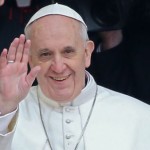God: Eternity, Free Will, and the World
by Dr. Dennis Bonnette
Filed under God's Nature

Rather than present a systematic defense of all the divine attributes involved in this article, my purpose here is to explore some philosophical doctrines about God whose interrelationship appears perplexing, if not outright contradictory – drawing on whatever elements of natural theology are needed. Starting with a proof of God’s immutability, I will then consider his eternal life and how it is possible for him still to have free will. Finally, I will consider how it is possible for an eternally unchanging God freely to create and interact with a temporal world that constantly undergoes change. Since some claim that this entire metaphysical scenario is radically incoherent, careful philosophical explanation is mandatory.
Some of the logical steps entailed in this topic are fairly straightforward. Understanding the inferred metaphysical concepts is somewhat more challenging.
God's Immutability and Eternity
As has been shown previously, a key inference of St. Thomas Aquinas’ proofs for God’s existence is that God is the Uncaused First Cause. Since God is uncaused, he cannot be the subject of motion or change, because whatever is moved or changed must be moved or changed by another. Hence, God is immutable.
Moreover, the Uncaused First Cause must be pure act, since change would require moving something from potency to act. But, if no change is possible, God must have no potency to further act. Hence, he is pure act, which means pure being. In fact, as the absolutely simple first being, God is not even composed of essence and existence. He is pure act of existence without any limiting essence, that is, the Infinite Being. Only one such being is possible, since if there were two, one would limit the infinity of the other.
Some, confusing activity with motion, misconstrue God’s immutability as meaning frozen, static, lifeless, and impotent. Quite the contrary, the Infinite Being already possesses all existential perfections so completely that change could give no greater activity or power.
God’s immutability entails his eternity, since what is immutable has neither beginning nor any progression through time. God is utterly outside of time, existing as it were “all at once.” Ordinary language betrays human understanding of God’s eternity. Eternity does not mean endless duration: time without beginning or end. God’s eternity means the simultaneous and complete possession of infinite life. It is the term defining the divine life of God. We know God is living since he is the cause of that positive existential perfection that we call “life” in creatures. The term, “life,” in God must be understood analogously in that he does not live with the limitations inherent in earthly organisms, but rather possesses pre-eminently whatever positive perfections life entails in created living things.
In the divine eternity, God experiences no succession of events. Because of divine simplicity, God’s knowledge of himself and, thereby, of the world he causes, is one with his singular causal act whose multiple objects are the unfolding sequence of temporal world events -- events novel to us, but not to God. God cannot change his mind or will or any aspect of his being during his eternal existence.
Objections to Free Will in God
For us, free will entails considering various alternatives, knowing we can choose one as opposed to others, and then finally, making a choice one way or another. This process takes place through time. But, God is not in time. He cannot choose between alternatives as we do. Since to choose freely requires that there be a real difference between the potency to various alternatives and the actuality of choosing a single option, time is needed to make the choice. God’s eternal immutability appears to preclude him having free will.
Again, if God is pure act, there can be no distinction between potency and act, meaning that there is no real distinction between what God can do and what he actually chooses to do. Since a thing’s nature determines what it is able to do, it would appear, then, that God’s nature must determine both what he is able to do and what he actually chooses, since there is no distinction between them. Hence, God’s alleged “choices” appear to be determined by his nature, and thus, not free choices at all.
God Possesses Free Will
Still, since the positive perfection of intellect is found among creatures, God must possess intellect – for God could not create finite intellects unless he possesses that perfection himself. Just as the intellect knows being as the true, the intellectual appetite desires being as the good. The intellectual appetite is called “will.” Thus God must have will as well as intellect. In fact, the divine simplicity requires that his will is identical with his intellect.
It may seem odd, but it is possible to have a will that is moved necessarily toward certain objects. For example, God wills his own goodness necessarily. As St. Thomas Aquinas puts it:
“The divine will has a necessary relation to the divine goodness, since that is its proper object. Therefore, God wills the being of his own goodness necessarily, just as we will our own happiness necessarily….”1
Thus, the notion of will itself, as the intellectual appetite for the good, is not inconsistent with an absence of free choice.
And yet, despite being utterly immutable and eternal, God does possess free will with respect to some things. While he necessarily wills those goods that are equivalent to his own being, such as his own existence and his own goodness, he nonetheless does not necessarily will lesser goods than his own goodness, such as his will to create this world or that world or not to create at all. Again, St. Thomas explains:
“God wills things other than himself only insofar as they are ordered to his own goodness as their end. … Hence, since the goodness of God is perfect and can exist without other things, inasmuch as no perfection can accrue to him from them, it follows that for him to will things other than himself is not absolutely necessary.”2
St. Thomas maintains a suppositional necessity here, saying, “… supposing that God wills a thing, then, he is unable to not will it, since his will cannot change.”3
The immediate evidence of the existence of such freedom by God to will lesser goods than himself is the evident fact that the finite world in which we live actually exists, as opposed to an unlimited number of possible other worlds he could have created. Is he necessitated to create this world? No, because this world is a lesser good than his own goodness which already includes every possible perfection of goodness. Hence, God creates this finite world in which we live by a perfectly free act of his will.
Objections Answered
First, some think that God being the Necessary Being is inconsistent with the contingency of his free will choosing to create this world, which did not have to exist at all. Although God is the Necessary Being, this necessity refers primarily to his act of existence, since his essence is identical to his existence – thus, making it impossible for him not to exist.
The term, “necessary,” with reference to the divine nature cannot be capriciously defined to suit some contrived anti-theistic argument. Its meaning originates in the context of St. Thomas’ Third Way, which refers solely to a being whose necessity for existence comes from itself and not from another.4 Such a being must be that being whose essence is its very act of existence.
Hence, God’s necessity means primarily the necessity of his existence. As shown by St. Thomas above, that necessity also pertains to God’s willing his own goodness, since it is equivalent to his own being -- but it is not necessary for God to will things other than himself.5
Thus, when God chooses freely to create this world as opposed to any other, this choice does not make him to somehow become a “contingent” being. He is still the one and only Necessary Being, but he makes a free choice that in no way contradicts his existential necessity.
Second, some object that God cannot have free will, since that would necessarily entail a change in him, which his immutability and eternity forbid. But this is to make the gross error of thrusting God into time – as though he was first not making a choice and then later making one, which would be a change in him.
Unless one misconceives God in a material, temporal fashion, the metaphysical insight required is to grasp that God’s very substance is an eternal act of will in which some objects are willed necessarily and others are willed non-necessarily. This is not an act having temporal duration in which choice begins at some point. God is simply his own act of choosing – a choice eternally identical with his very substance through divine simplicity.
Third, it was objected that God’s choices are not really free, because his choice is identical to his nature, and therefore, is determined by his nature. It is true that God’s nature determines what he is able to do and that his actual choice is identical to that nature. But, this will prove to be unproblematic.
While God might have made other logically possible choices (and there might be other logically possible Gods), such hypothesized alternatives are not metaphysically possible – given that the one and only actual God, who is immutable, has made the choice he has actually made. These hypothesized alternatives may be metaphysically possible in an absolute sense, but they are not so de facto – given that only one God actually exists and has made the actual choice he has eternally made.
What is de facto metaphysically impossible renders the alternative “logical possibilities” not logically possible at all, except as contrary-to-reality mental imaginings. That is, they are not actually real possibilities at all.
God is actually able to do only what he actually freely wills to do, since on the supposition that he wills a certain choice from all eternity, that will cannot be changed -- because of the divine immutability. Thus, there is, in fact, no distinction between what God is able to do and what he does do – but what he does do, he does freely with respect to goods that are less than his own goodness.
Given the divine nature, God is determined to will his own existence and goodness necessarily. But, he is also determined to will lesser goods than his own existence non-necessarily, which means that he is determined by his own nature to act freely. That is to say, with respect to the willing and creation of lesser goods than his own goodness, God is determined to be not-determined. His nature determines that the divine will’s act with respect to certain specified objects, such as the creation of this particular world, is not necessary, and therefore, is perfectly free.
Thus is resolved the problem of God’s nature “determining” his choice.
How God's Eternity Relates to the Temporal World
Finally, while God’s general relation to the created world is a topic far too vast for this article, the question logically arises as to how an eternal, unchanging God can cause the dynamic, changing world we inhabit – without being subject to change himself.
God is utterly outside the created world -- existing in timeless eternity. But, according to Christian revelation, the world had a temporal beginning. Moreover physical creation is subject to constant change and motion. Indeed, that very coming-to-be is the starting point for the most famous proof for God’s existence, St. Thomas’ First Way.6
Some argue that every change in the temporal world requires a change in God to initiate that new causation that changes the world. For, how can one thing initiate new motion in another without itself changing in the very act of “sending forth” its causal influence to the world?
Such reasoning may make perfect sense to a mentality mired in philosophical materialism. But, it makes no sense at all in existential metaphysics. Physical agents change as they cause effects. But to think that this also applies to spiritual agents is absurd and illogical.
Since whatever is in motion or is changed must be moved or changed by another, maintaining that a cause cannot cause change without itself changing would entail an infinite regress among simultaneous caused causes and make impossible an Uncaused First Cause. This is because it would mean that every cause would be an intermediate cause in need of a prior proper cause. If every cause has a prior cause, any causal regress among proper causes would have to regress to infinity. But, I have shown elsewhere that an infinite regress among simultaneous proper causes is metaphysically impossible. For one thing, the sufficient reason for the final effect would never be fulfilled. Therefore, it is manifestly false to claim that every cause must itself change in order to cause a change in another.
Causality in metaphysics is simply a subdivision of the principle of sufficient reason. The notion of causality arises from metaphysical analysis of the effect, not of the cause. If every being must have a sufficient reason for its being or coming-to-be, then either a thing is completely its own reason for being, or else, to the extent that it does not completely explain itself, something else must. That “something else,” or extrinsic sufficient reason, is what we call a “cause.”
Thus, the causality principle states that every effect requires a cause. What is changing or in motion fails to explain its own coming-to-be, and hence, needs a cause. Nothing in this explanation of causality logically implies a change in the cause as causing – only something happening to the effect.
God Remains Immutable as Temporal Events Unfold
Furthermore, since change takes place in the effect, not in the cause as such, there is no problem with God being eternally unchanging, while the world could have a beginning and events unfold sequentially in it throughout time.
God, in a simple eternal act of will, causes all events in physical creation to take place at their appointed times. All beginnings and changes take place in creatures, not God. Indeed, time and space themselves are part of the world’s created limitations. If Christian belief that the world began in time is true, God simply willed the creation of the world to be with a beginning in time – again, something happening to the world, not to its timeless Creator.
This article is not the whole of natural theology. And yet, it does explain how God can be changeless and eternal, while still having a free will through which he causes the sequential unfolding of events in a temporal world of which he is not part – but reigns as its sole and timeless Creator.
Related Posts
Notes:
Note: Our goal is to cultivate serious and respectful dialogue. While it's OK to disagree—even encouraged!—any snarky, offensive, or off-topic comments will be deleted. Before commenting please read the Commenting Rules and Tips. If you're having trouble commenting, read the Commenting Instructions.













